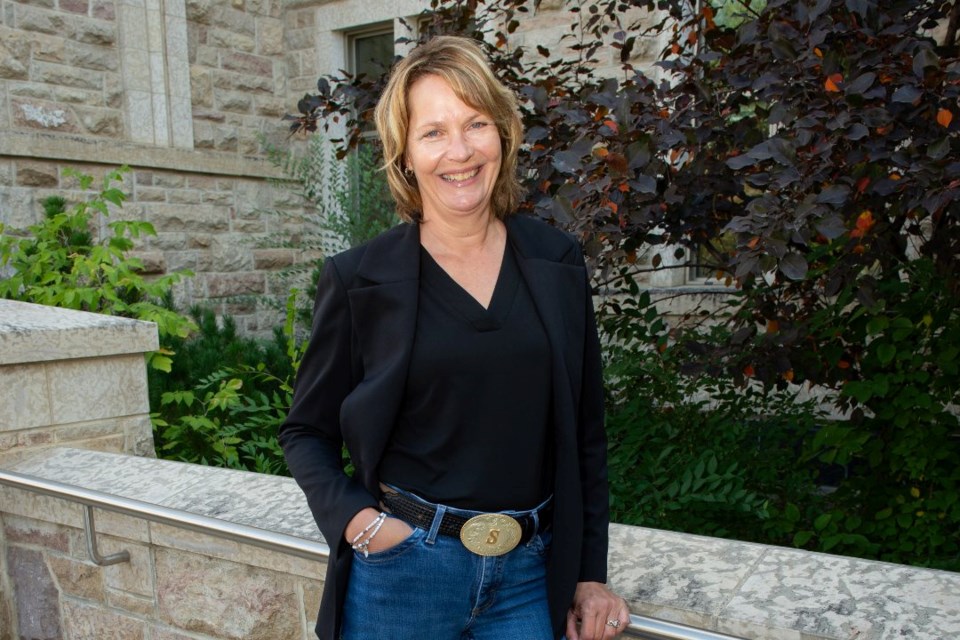SASKATOON — USask rural health centre announces two distinct milestones: a new name, and a ‘transformative’ $1.5 million gift to develop a mobile unit for rural health and wellness.
The newly renamed Canadian Centre for Rural and Agricultural Health (CCRAH) is celebrating its new name along with a $1.5 million gift that will help ensure the safety and health of rural people and their families.
Dr. Shelley Kirychuk (PhD), the director of the CCRAH, said the gift was an incredible boost for the centre as it takes its next steps into the future.
“This is transformative,” she said. “It makes a big statement.”
The $1.5 million gift was given to the CCRAH by an anonymous donor for the purpose of developing a mobile unit for the CCRAH. The new unit will give the centre speed and flexibility to travel to rural areas in Saskatchewan to support residents as well as enable more nimble and reactive field research teams.
The mobile unit will be a new addition to the capabilities of the CCRAH, which regularly operates in rural Saskatchewan but has never had its own mobile service centre before. This unit will serve rural communities, bringing services to those communities and improving the well-being of rural residents throughout the province.
Kirychuk said this added capability would never have been possible without the generosity and vision of the anonymous donor.
“It’s about having this unit where we can do pulmonary function testing, where we can do hearing testing, where we can provide these rural supports, where we can do knowledge mobilization activities and we can do some of our research activities, but also showcasing ‘we’re here,’” Kirychuk said. “The mobile unit will help us increase our visibility in rural areas, serve more people, and draw in even more partners.”
The gift announcement and celebration of the centre’s new name are separate initiatives announced at the same time in conjunction with today’s CCRAH open house. The Canadian Centre for Rural and Agricultural Health became official on June 1, 2023.
The centre was established by USask in 1986 as the Centre for Agricultural Medicine, working alongside the Lung Association of Saskatchewan with a focus on agricultural environmental exposures and lung health.
Kirychuk, who was named director of the CCRAH in early 2023, said the name change emphasizes the work that the centre conducts in rural Saskatchewan.
“We do have a very strong agricultural focus, the health and safety of those who live and work in agriculture areas, but we also work in the broader rural space, around dementia care, around ergonomics and injury prevention, around access to care, and with Indigenous communities,” Kirychuk said. “We felt ‘rural’ was a very necessary component to include in our name. (The new name) reflects all the work we do in the rural space.”
Over its nearly 38 years of existence, the centre has continually grown and expanded its research programs and services. The newly announced gift will also significantly impact and expand the Agricultural Health and Safety Network (AHSN), one of the centre’s key programs. This program connects close to 200 rural municipalities in Saskatchewan with services and knowledge mobilization for farmers and their families.
Kirychuk lauded the tremendous partnerships that have been built between the CCRAH and organizations like the provincial government’s Ministries of Agriculture, Health and Rural and Remote Health, and the Saskatchewan Association of Rural Municipalities (SARM) to continue providing health services and research for rural populations.
As someone who grew up in and has a farm in rural Saskatchewan, Kirychuk said she has seen a change in the landscape when it comes to rural living. She said she hopes the CCRAH can continue providing support to rural populations moving forward.
“I want our centre to be part of that process to support people to continue to live and work safely and happily in rural Saskatchewan,” she said.
— Submitted by USask Media Relations
SASKTODAY.ca is Saskatchewan's home page. Bookmark us at this link




